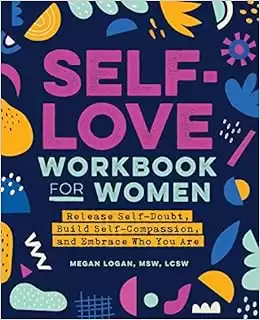Top 10 Interpersonal Skills You Need NOW for a Successful Career
Interpersonal skills are essential in our lives, but how many people think about their importance to the success of their careers?
We depend on our interpersonal skills like effective speaking, active listening, respect, flexibility, and patience when interacting and creating connections.
But interpersonal skills encompass a lot more than just socializing and getting along with other people. We need them for everything from networking at conferences, interviewing for a new job, and advancing our careers.
Some of us spend more time with the people at work than we do with our families. Communicating and working well with your coworkers, customers, and managers can mean the difference between having a successful career and a failed one.
If you are looking for the must-have skills for a resume, a way to stand out during your next interview, or want to make a good impression with your boss and colleagues, be sure to focus on the top 10 interpersonal skills listed below!
Table of Contents
What Are Interpersonal Skills?
Interpersonal skills are transferable – meaning they are valuable across numerous positions and industries. They are also known as soft skills, life skills, social skills, and people skills.
Many different interpersonal skills can help you succeed in your career. These include:
- Communication
- Listening skills
- Empathy, respect, and patience
- Conflict management
- Problem-solving
- Leadership
- Transparency
- Collaboration and teamwork
- Negotiation, influence, and persuasion
- Friendliness, kindness, and humor
- Adaptability and flexibility
- Dependability
- Decision making
- Emotional intelligence
- And more
These skills aren’t typically learned through textbooks or formal training but instead through personal experiences and interactions. If these skills or traits don’t come to you naturally, you can develop them through practice, research, observation, or working with a coach or mentor.
Hard skills, on the other hand, are more industry-specific and often require specific training to obtain. These are more common in roles that require math, science, computers, analytical, writing, and technical skills.
The Importance of Interpersonal Skills
We interact and communicate with others every day. By utilizing our interpersonal skills, these interactions allow us to develop lasting relationships and avoid conflicts and misunderstandings in our personal and professional lives.
These are essential skills to have if you want to be successful in your career. They can help you succeed during a job interview and help you navigate the day-to-day job complexities and changes in your work environment.
When it comes to applying for jobs, companies look at how well-rounded you are as an individual. They don’t want someone good with people on paper but who can’t connect with anyone well in real life.
Employers are looking for people who can work well with others and bring more than just a solid technical skillset to the table. You also need to be someone who can solve problems and maintain effective relationships. Therefore, hiring managers will want to hire applicants that can handle technical jobs and interact well with coworkers and customers.
Research suggests that soft skills are now more important for finding work regarding hard skills vs. soft skills. Although employers are on the lookout for people who have both skill sets, they value the latter. According to a recent poll by CareerBuilder, most employers prefer candidates with strong interpersonal skills over those who can boast expert-level skills in their given area.
Once you’ve been hired, you will use and further develop these skills. By interacting with other employees, you will understand what it takes to work efficiently with them and adjust your methods accordingly. As a result, you will succeed in every job you get.
What are the Top Interpersonal Skills Needed Today?
1. Be a Good Communicator
Effective communication is a crucial soft skill, according to business etiquette consultant Barbara Pachter. In her recording, How to Communicate Effectively in the Workplace, she states, “Whether it’s for a job interview, starting a new job or working with teammates on the job, good communication skills are required. That includes everything from answering the phone, emails, memos, letters to clients, and presentations.”
Pachter also noted that written communication is the first step to building relationships. “Email introductions are a good idea,” she said. “They help people feel comfortable when they eventually meet one another in person.”
Communication is more than just the words we speak or write. It also includes nonverbal communication such as our body language, facial expressions, tone of voice, and maintaining eye contact. Sometimes poor communication can be from low self-esteem and that can be improved with the help of cognitive-behavioral therapy.
Strong interpersonal communication skills are the foundation of any successful career, so focus on improving your communication skills and be sure to include them in your cover letter and resume skills section during your job search.
This colorful journal was created by a licensed clinical social worker and it has many positive affirmations in addition to journal prompts for anxiety.
2. Active Listening
Being able to listen effectively is another valuable soft skill that goes hand-in-hand with communication skills.
“Good listening skills are essential in any workplace because they help us stay focused on the speaker,” Pachter said. “Listening also allows you to learn from others and to build better working relationships.”
To be an efficient active listener, start by eliminating distractions when others are talking to you. Yes, this means you’ll need to put down your cell phone or look away from your computer screen and pay attention to the conversation.
It also means that you don’t interrupt when others speak and stay quiet until they have finished expressing themselves to avoid leaving them feeling unheard (which is also a sign of empathy).
You will want to make sure the other person knows you are listening by asking and answering questions and by paraphrasing or repeating back a few words of what was said to show understanding.

3. Show Empathy
Being empathetic means that you not only understand the needs of other people but are also sensitive to their thoughts and feelings.
Although it is an essential trait for leaders, employers also want compassionate staff who are empathetic to others and help to promote a positive and highly functioning workplace. As an employee, try your best to be open and see things from the other person’s perspective and not just your own.
Internationally known psychologist and New York Times bestselling author Daniel Goleman stated, “If your emotional abilities aren’t in hand if you don’t have self-awareness, if you are not able to manage your distressing emotions, if you can’t have empathy and have effective relationships, then no matter how smart you are, you are not going to get very far.”
4. Conflict Management
Unfortunately, conflicts will arise, even at the best jobs.
Conflict resolution and problem-solving are vital interpersonal skills employers value. Handling conflict calmly and professionally will make you an asset. Employees who can understand and address the problem, show compassion, and create and implement solutions are the ones who succeed in their careers.
Controlling your emotions and staying level-headed will help prevent any issue from becoming a much bigger problem.
5. Teamwork
Teamwork is a valuable skill to have for every work environment. Even if you work alone at a night shift job and rarely see your coworkers, you are part of a team.
You need to be able to work with others and complete tasks together. Your coworkers depend on you to do your job so that they can do theirs.
As American author, business consultant, and motivational speaker Ken Blanchard said, “None of us is as smart as all of us.”
Team players are often assigned greater responsibilities, making them stronger candidates for promotions and raises.
Your teamwork and team-building skills are developed alongside the other vital interpersonal skills already mentioned, such as communication, active listening, and showing empathy.
6. Be Coachable
Who would you rather work with? Someone who is open-minded, willing to learn, and accepts constructive criticism? Or someone who takes criticism personally, rejects feedback and advice, and isn’t willing to change their ways?
Being coachable is an integral part of your professional development. It means you are willing to improve your performance and evolve your skills. You recognize that others have a wealth of knowledge that you can benefit from. Not only do you value others’ input, but you also take action and seek their feedback so that you can achieve your goals.
7. Your Attitude Counts
No one wants to work with lazy or negative people, and managers don’t want to promote employees who demonstrate these characteristics.
Having a positive attitude and being liked is an incredible asset to have. Your colleagues will have your back, and your manager will be more accommodating with you if they like you and you are easy to work with.
Being dependable and staying true to your word means others can (and will) rely on you. Employers want staff who they can depend on to deliver quality work and be on time.
So be professional and polite, keep improving your impersonal skills, and do the job to the best of your abilities.
8. Leadership Skills
In many organizations, leadership is not limited to the top management alone but to every individual.
If you have leadership skills, you can effectively make decisions and stand by them. Leaders also need to have interpersonal skills like patience, compassion, flexibility, and strategic thinking to effectively develop a rapport.
For example, as a team leader, you need to use interpersonal skills to manage group discussions and guide others through projects and other work tasks. But leadership skills are also necessary to motivate fellow workers, foresee the future, and set clear goals and guidelines.
Regardless of your position in the organization, these skills are necessary to help you achieve more than just your job description. It enables you to rise in the organization hierarchy, which can also increase your pay. This not only benefits you but also helps the organization grow and achieve its goals.
It is another critical interpersonal skill that employers look for when hiring or promoting employees.
9. Negotiation
World-renowned negotiator Roger Dawson stated: “Everything is negotiable.”
Being an effective negotiator is a highly valuable skill that goes hand in hand with communication. It can range from negotiating settlements for a law firm to establishing investment partnerships.
But negotiation skills are important to have for every role. Whenever we compromise or find a solution with our coworkers, supervisors, suppliers, and customers, we use our negotiating skills to reach that understanding or agreement.
And when it comes to the success of your career, negotiating skills can come in handy. Your job will be much more rewarding and enjoyable if you can successfully negotiate a raise, promotion, or other work perks like a flexible schedule or more paid time off.
10. Be Able To Influence Others
Similar to negotiation skills, being able to use your influence to secure the support of your peers and superiors when you come up with a new idea or solution to a problem is a valuable skill to have in your repertoire.
Contrary to popular belief, you don’t need to have a prestigious job title or leadership to influence others.
By establishing yourself as a trusted “go-to” person, employers will notice that other staff members recognize your expertise and turn to you for advice, support, and motivation.
Having influence means having power. Not taking advantage of this power will make you a respected and productive asset to the organization, where your opinions and feedback will be embraced.
In Summary
Even if you have the technical skills required for the job, you’ll need more than just hard skills to succeed in your career. Solid communication skills, the ability to work collaboratively, being a good listener, and being a team player are just a few of the most important interpersonal skills employers look for.
This post originally appeared on Wealth of Geeks.
Originally posted 2021-12-05 02:31:59.
Megan Santiago
Latest posts by Megan Santiago (see all)
- How to Find a Trauma Therapist in Tampa - September 30, 2024
- The Best Ashwagandha Supplement – It Works Fast - March 10, 2024
- Shocking Truths about Magnesium Glycinate Vs. Bisglycinate. Which is Better? - March 10, 2024


